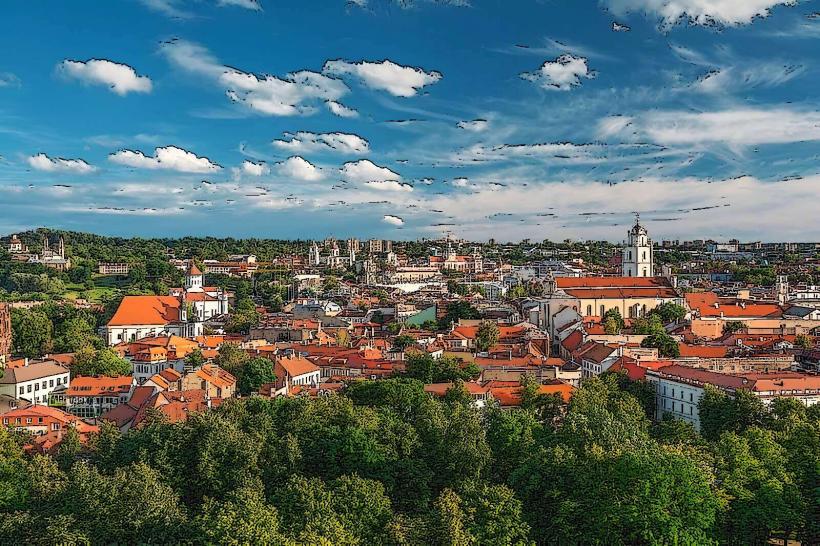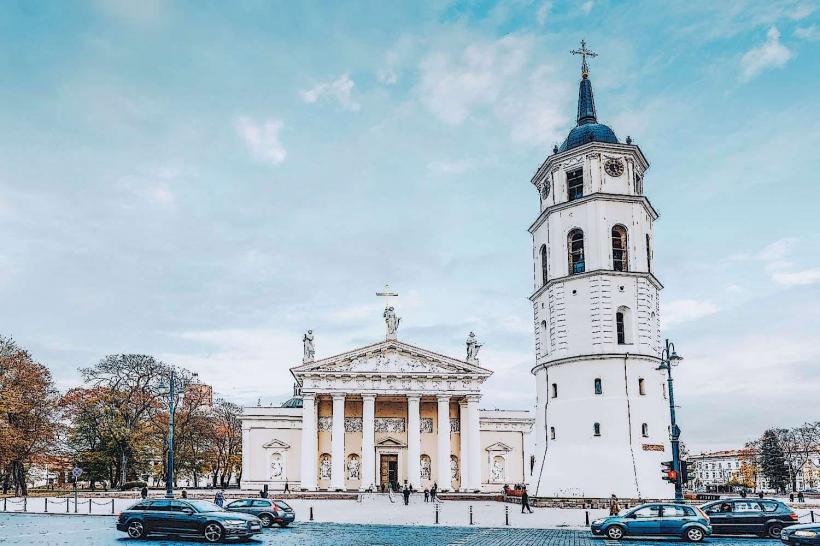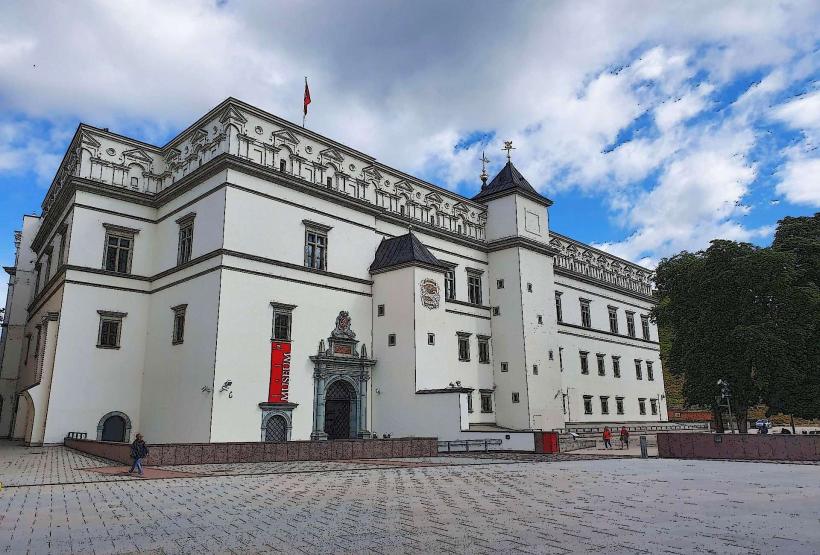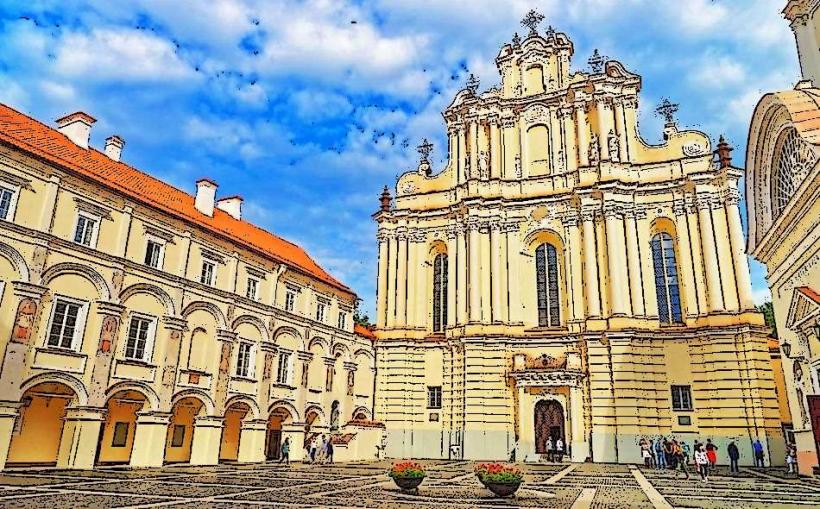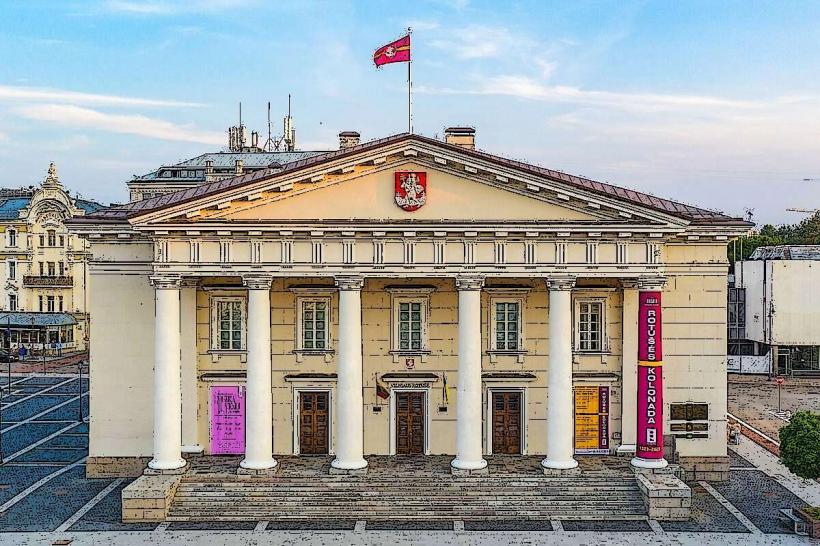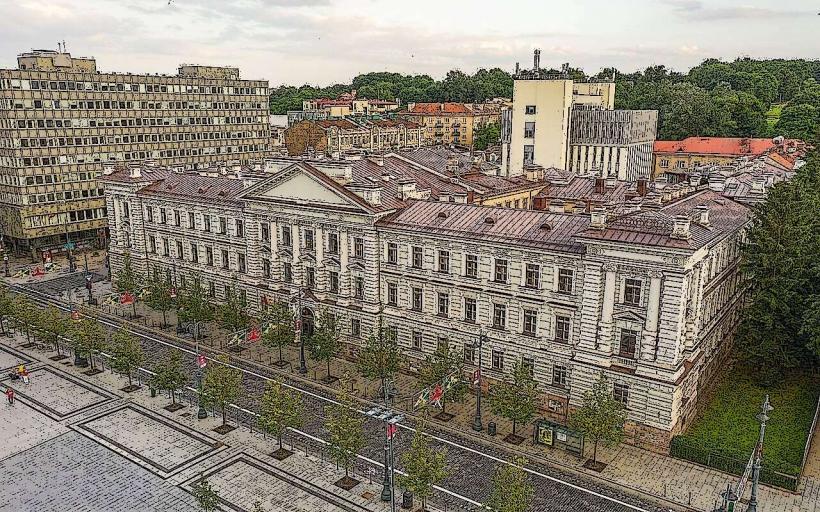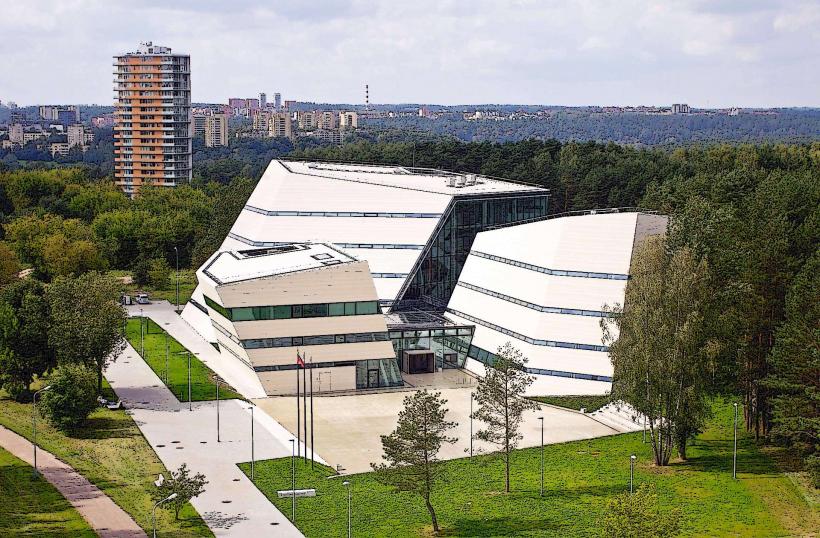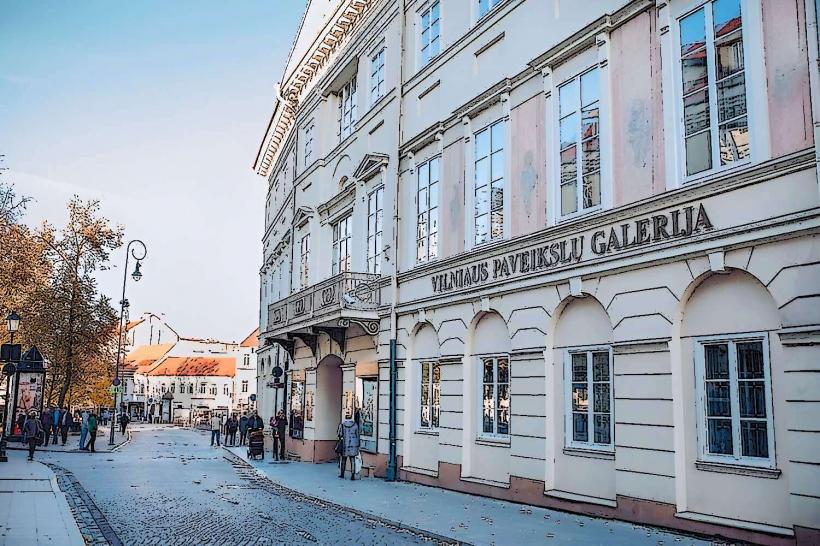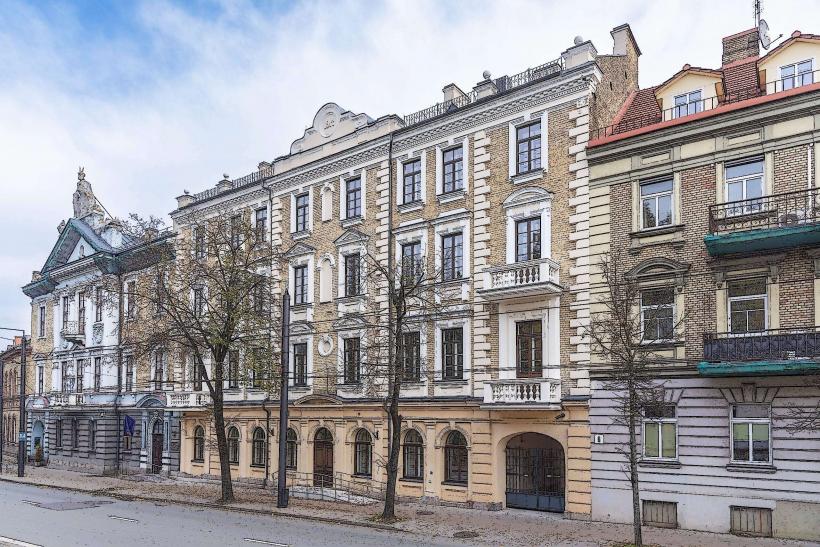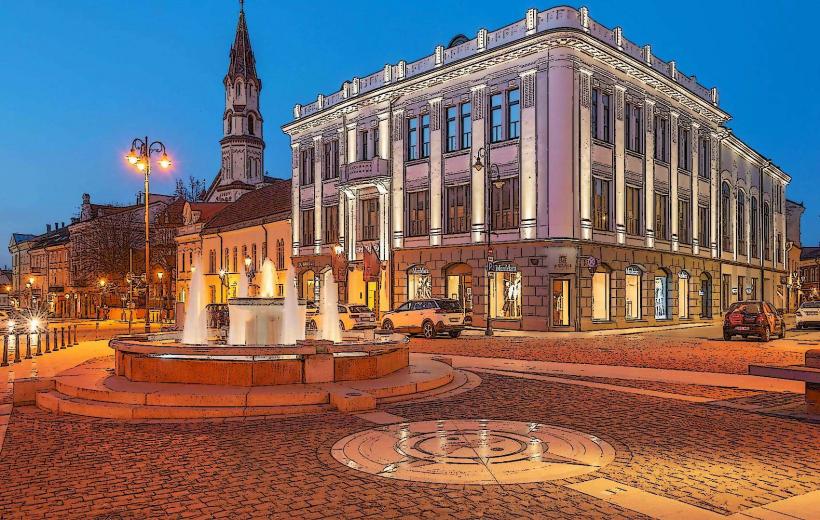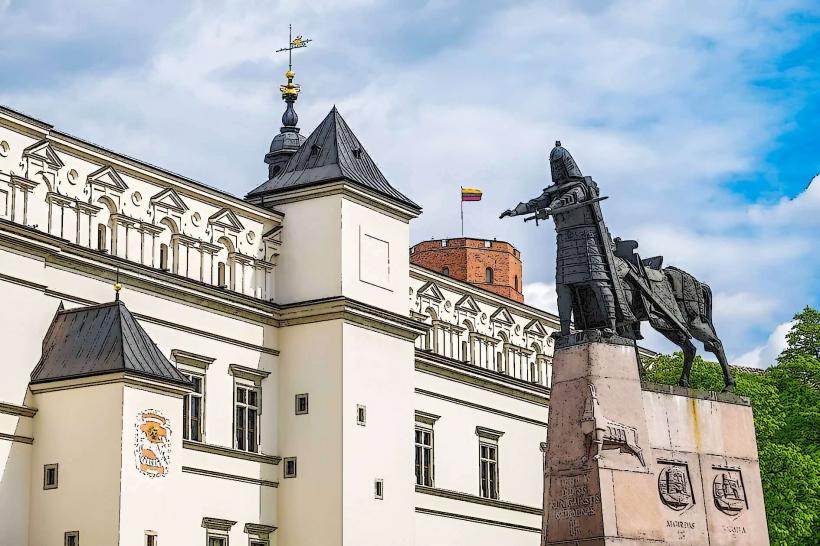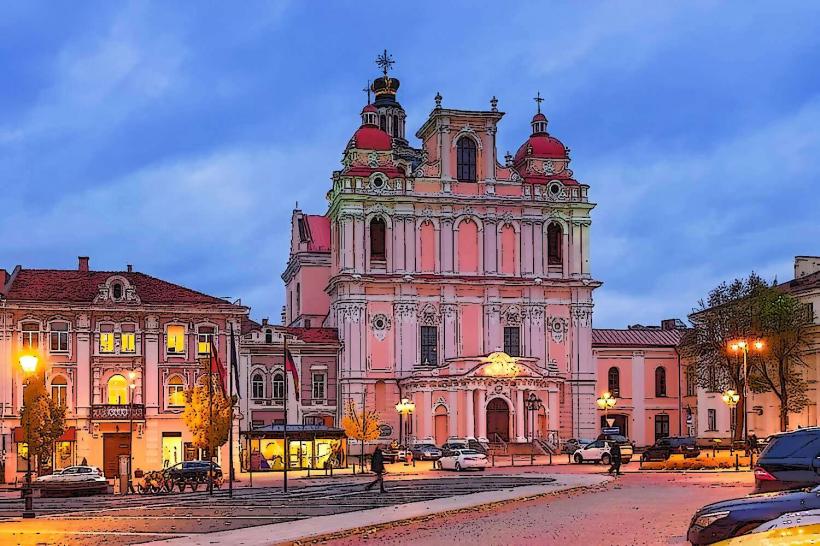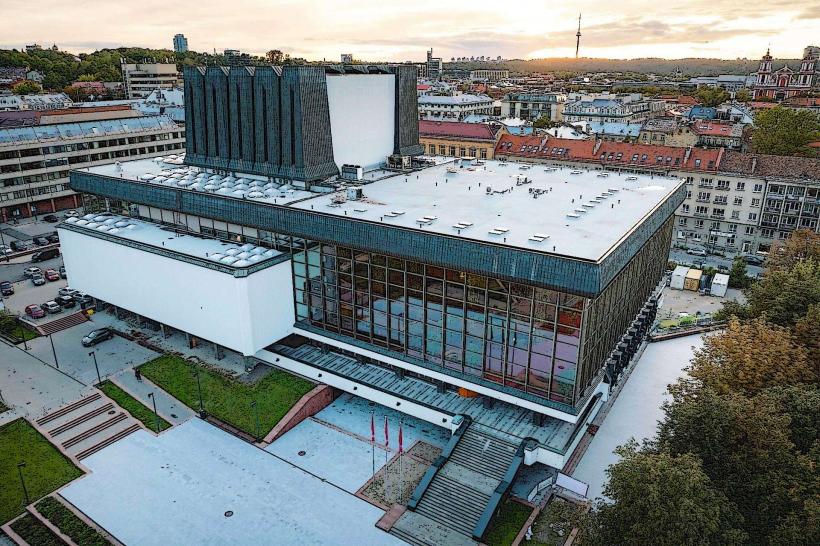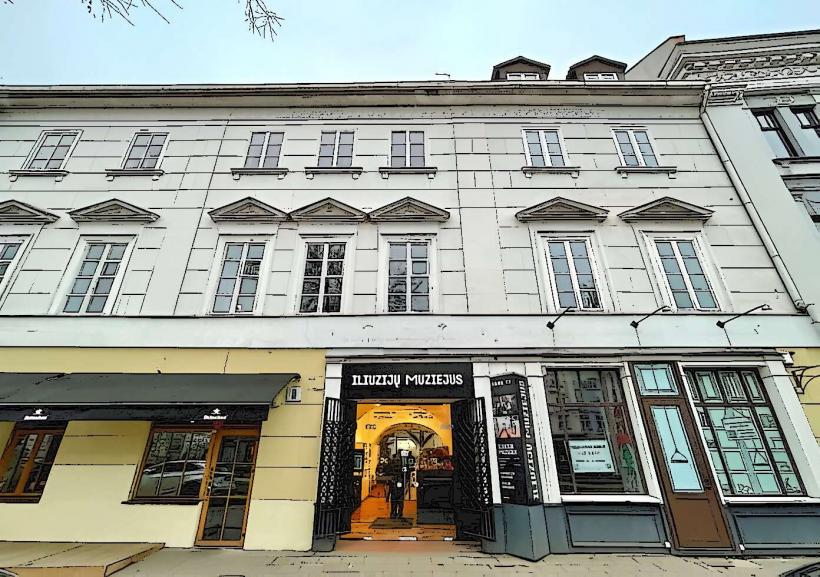Information
Landmark: St. Anne's ChurchCity: Vilnius
Country: Lithuania
Continent: Europe
St. Anne's Church (Šv. Onos Bažnyčia)
St. Anne's Church is one of the most celebrated and architecturally distinctive churches in Vilnius, Lithuania. Known for its Gothic architecture, the church is a masterpiece of medieval design and one of the most important landmarks in the city's Old Town. Its intricate and elaborate appearance has earned it a place among the most admired churches in the world.
Historical Background
Foundation: St. Anne's Church was built in the late 15th century, around 1495, although there is some debate about the exact date. It was originally founded by Grand Duke of Lithuania, Alexander Jagiellon. Over time, it became a prominent feature of Vilnius' religious and cultural life.
Construction: The church was constructed during the Gothic period, and its design is attributed to several master builders of the time, including Jan Rygier, who is thought to have contributed to its intricate brickwork. The church was intended to serve the Franciscan Order, and it remained under their care for much of its history.
Significance in Lithuanian History: St. Anne’s Church is associated with Lithuanian Catholicism and the Jagiellonian dynasty, which ruled over Lithuania, Poland, and other parts of Eastern Europe. It has witnessed many significant moments in the country’s history, and its location near the Vilnius Old Town places it at the heart of Lithuania's cultural and religious heritage.
Reconstruction: The church has undergone various repairs and renovations, particularly in the 17th and 18th centuries, after suffering damage from fires and the destruction caused by various conflicts. In the 20th century, it was also restored after damage during World War II.
Architectural Features
Gothic Design: St. Anne’s Church is considered one of the finest examples of Flamboyant Gothic architecture in Europe. It is renowned for its elaborate brick façade, which is rich in detail and form. The church’s design reflects the decorative style of the late Gothic period, with soaring spires, pointed arches, and intricate tracery.
Exterior: The church is made primarily of red brick, which gives it a distinctive look. Its façade is dominated by two towers that rise gracefully above the entrance. The two spires, each with a delicate, pointed crown, are a signature feature of the church and are often seen as a symbol of Lithuanian Gothic architecture. The brickwork is elaborate, with fine detailing, and the entire structure is an impressive example of late Gothic craftsmanship.
Interior: Inside, the church is relatively simple compared to the ornate exterior, but it still contains several notable features. The church has a large, open nave with pointed arches and vaulted ceilings, typical of Gothic structures. The altar and the pulpit are finely crafted, with Baroque elements added during the later renovations.
Chapels and Details: The interior includes several side chapels, and the walls are adorned with frescoes and sculptures. Many of the artworks and furnishings reflect a blend of Gothic and Baroque styles, which came after the initial construction.
The Church’s Notable Features
The Façade: One of the most striking elements of St. Anne’s Church is its façade. The red brickwork is finely detailed, with ornamental features such as pointed arches and tracery. The three portals at the entrance are decorated with intricate carvings that add to the church’s beauty. The central portal features a statue of Saint Anne, the church's patron saint, with a detailed design showcasing religious and symbolic elements.
Spirals and Towers: The two towers are the most visually distinctive aspect of the church. Each spire is adorned with a series of elegant gothic pinnacles and sharp, upward-reaching shapes. The towers appear to almost “float” above the church due to their lightness and verticality, a common feature in Gothic architecture that was meant to draw the eye upward, symbolizing the connection between heaven and earth.
Rose Window: Above the main entrance is a rose window, a hallmark of Gothic churches, symbolizing the divine light. This window is elaborately designed, showcasing floral patterns that represent purity and divine beauty. It adds an extra layer of intricate design to the already stunning façade.
Cultural and Religious Significance
Religious Role: St. Anne's Church has long been a significant religious site for both the Franciscan Order and the people of Vilnius. Over the centuries, it has hosted many important religious services, including major Catholic festivals, processions, and rites of passage such as weddings and funerals. The church remains an active place of worship today, though it also serves as a cultural venue for concerts and other events.
Patron Saint Anne: The church is dedicated to Saint Anne, the mother of the Virgin Mary, making it one of the few churches in Europe dedicated to her. St. Anne is a popular saint in Lithuanian Catholicism, representing maternal love and protection. Her presence in the church’s name and symbolism is an important aspect of the church’s spiritual role in the city.
Connection to Other Historical Sites: St. Anne’s Church is situated near other important landmarks in Vilnius, including the Vilnius Cathedral, Gediminas' Tower, and the Palace of the Grand Dukes. The church is an integral part of the architectural heritage of Vilnius' Old Town, a UNESCO World Heritage Site.
St. Anne’s Church Today
Tourism: St. Anne’s Church is one of the top tourist attractions in Vilnius. Its stunning architecture and historical significance draw visitors from around the world. The church is often included in tours of the Vilnius Old Town, allowing visitors to admire the craftsmanship of the building and learn about the city’s Catholic history.
Music and Cultural Events: The church is also known for hosting classical music concerts, particularly organ performances, which take advantage of its superb acoustics. These events draw a large number of attendees, both locals and tourists, and contribute to the church’s role as a cultural venue.
Restoration and Preservation: The church has undergone several restorations, the most recent in the 21st century, to preserve its architectural beauty and ensure its longevity. Ongoing efforts to preserve and restore the church’s structure and artwork are essential in maintaining its role as a historical and cultural symbol.
Conclusion
St. Anne’s Church is a masterpiece of Gothic architecture and one of the most important and beloved religious buildings in Vilnius. Its stunning façade, intricate brickwork, and graceful towers make it a symbol of Lithuanian medieval artistry and a testament to the country’s rich Catholic heritage. Whether for its architectural beauty, religious significance, or role in Vilnius' cultural life, St. Anne’s Church remains one of the city’s most treasured landmarks.

